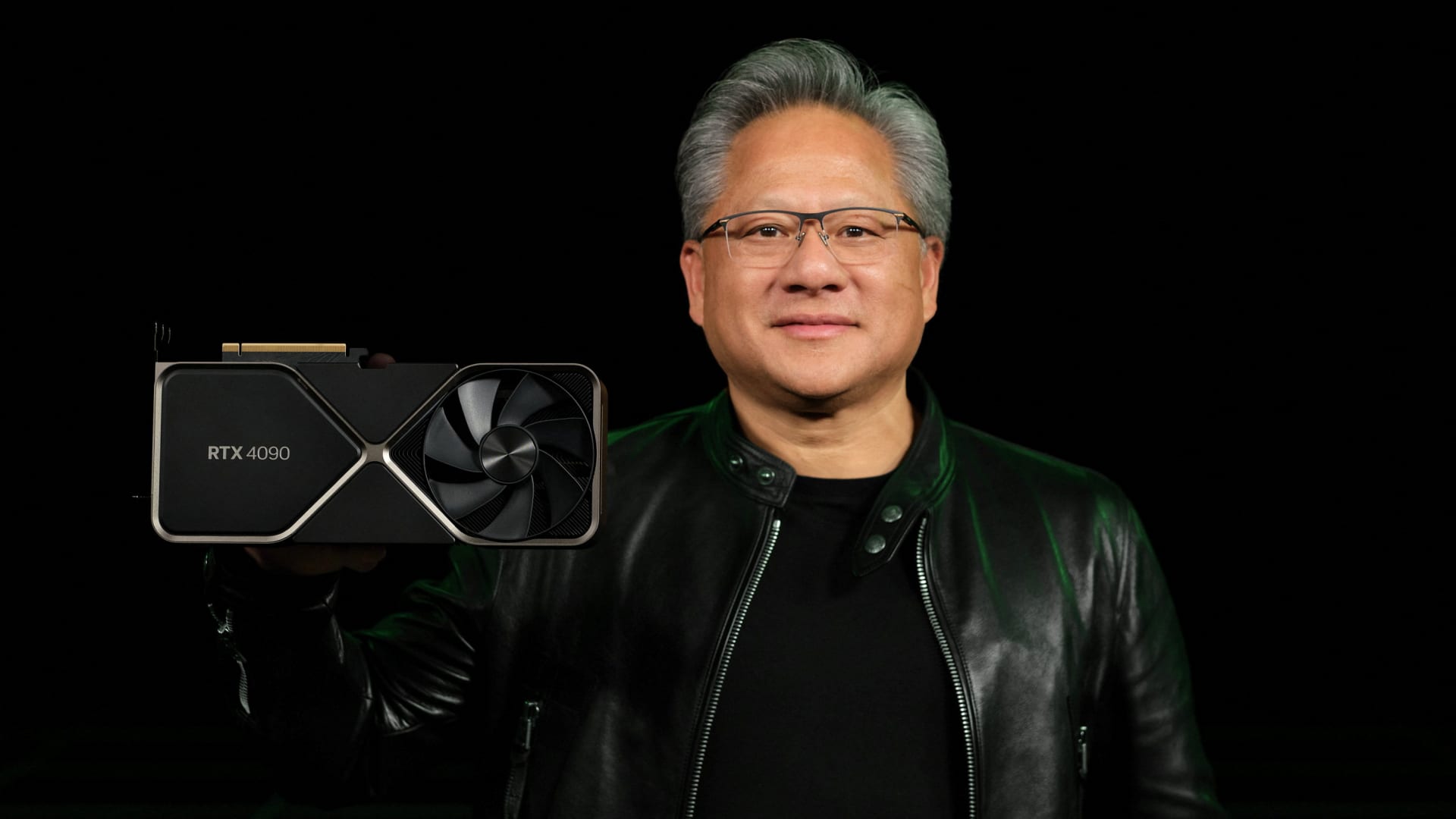
Nvidia Corp CEO Jensen Huang holds one of the company’s new RTX 4090 chips for computer gaming in this undated handout photo provided September 20, 2022.
Nvidia Corp | via Reuters
U.S. chipmaking giant Nvidia is set to launch an adjusted version of a gaming processor with slower performance in China to comply with U.S. export restrictions.
A product page on Nvidia’s website for Chinese consumers shows that the new Nvidia RTX 4090D — which a spokesperson says will be launched in January, according to Reuters — has 11% fewer “CUDA” (Compute Unified Device Architecture) cores than versions of the chip that are sold outside of China.
RTX is Nvidia’s line of advanced gaming GPUs, or graphics processing units. The company’s CUDA architecture is essentially a GPU equivalent for CPU cores, which are processing units.
Nvidia was not immediately available for comment when contacted by CNBC, but a company spokesperson told Reuters that the chip has been “designed to fully comply with U.S. government export controls.”
Nvidia “extensively engaged with the U.S. government” while developing the product, the spokesperson said, according to Reuters.
Washington has imposed export restrictions on China that prevent companies in the country from accessing some of the most advanced chips from American firms.
The export rules primarily target chips that enable AI applications, but gaming-focused processors are also in the firing line as many also have potential uses in artificial intelligence.
The Nvidia RTX 4090 was included on the list of banned U.S.-made chips, according to an Oct. 17 Securities and Exchange Commission filing. On its website, Nvidia says the RTX 4090D chip leverages AI to enhance performance.
Shares of Nvidia have surged in 2023, more than tripling in price year to date. The company has benefited from a rush of demand for AI, thanks in no small part to the immense buzz caused by OpenAI’s ChatGPT chatbot.





